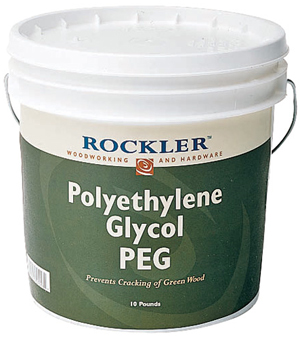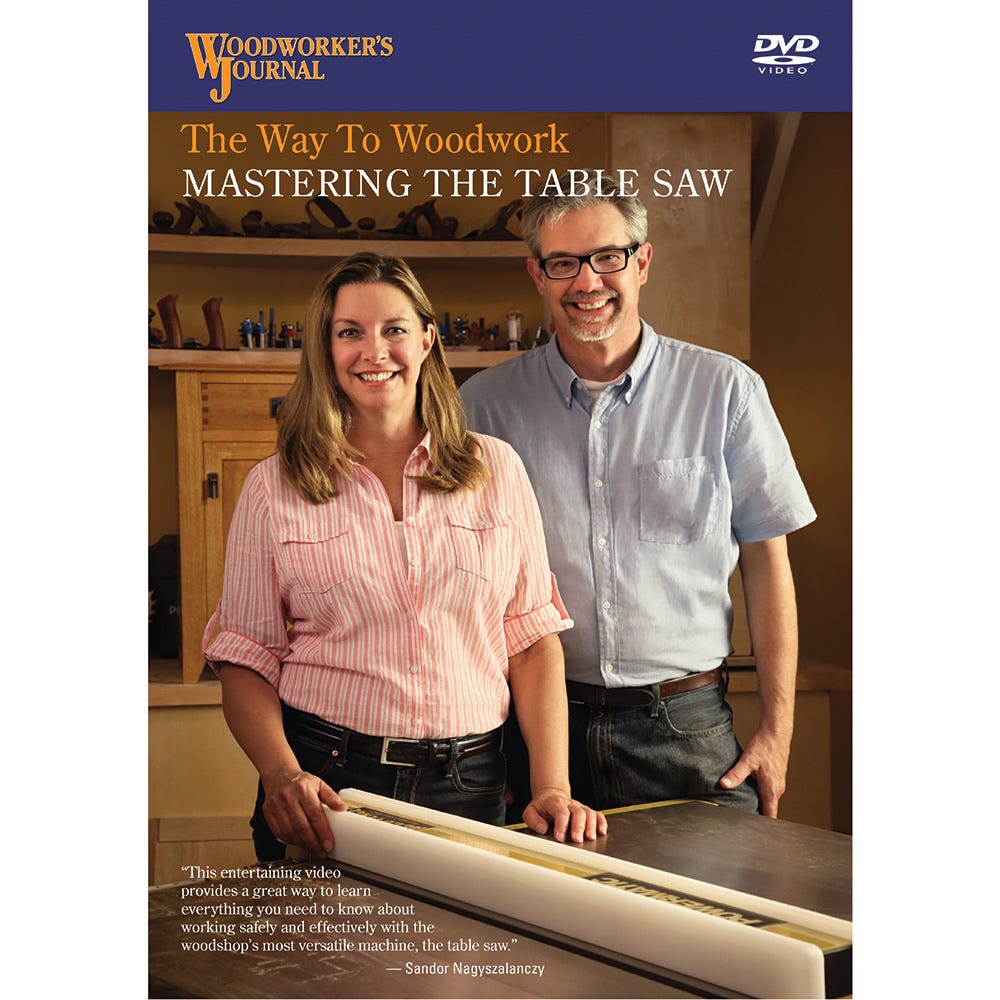
I am trying to make some clocks out of slabs from a cedar tree. Some of the slabs are beginning to check and split. A friend told me about something he called peg. I’ve heard poly-ethyl glycol is a liquid that is supposed to stop this. Do you know anything about this or where I can find it?
Michael Dresdner: Polyethylene glycol will indeed help stabilize green wood while drying, by replacing the moisture with the PEG. The most common type used for woodworking is PEG-1000 (one thousand is the average molecular weight). Because PEG-1000 is a solid wax at room temperature, it tends to leave a turned piece looking more or less finished right off the cutting tool. The down side is that no other finish will adhere or dry over it except for other waxes and some oils. On the positive side, it is food safe (PEG is also used as a laxative, and for other medical applications.) You can buy it from most turning or woodworking specialty mail-order or online catalogs.
Lee Grindinger: If the slabs you’re working with are end cuts, all end grain, there is little you can do to prevent checking. As wood dries, it shrinks. Think of each growth ring as a band, which shrinks differently than its adjacent band. The longer, outer bands will shrink and shorten more than the shorter, inner bands, and there simply is not enough elasticity in the wood to endure this. PEG could help if you get the wood into the solution before any checking begins, but don’t be disappointed if 19 out of 20 of these split. Years ago, a rather brilliant graduate student adopted this cause as a thesis. The best he could do under controlled conditions was 30% success.







